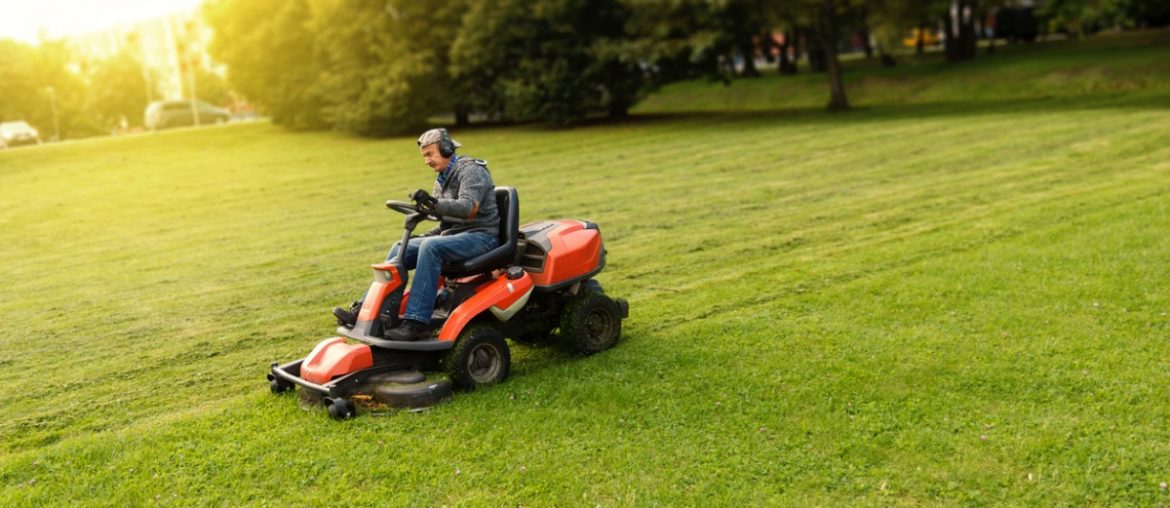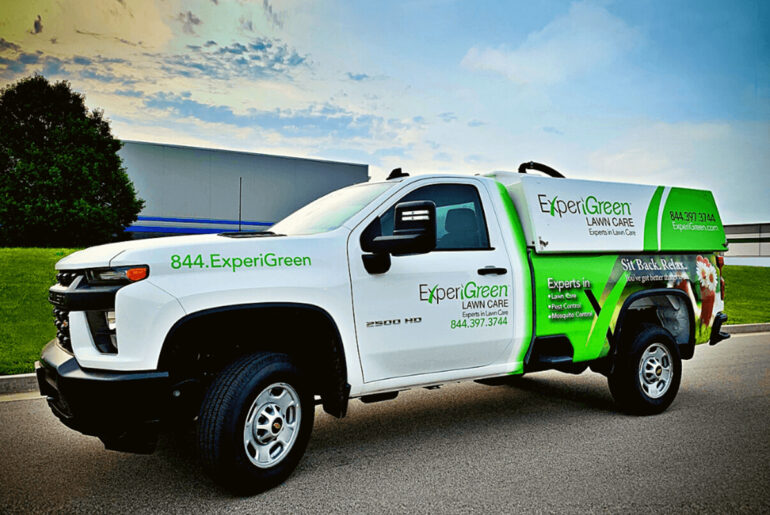A lawn care and landscaping business requires a fairly substantial investment in equipment, landscaping tools, and gear to get started. Fortunately, the money you spend today returns dividends down the line. When you invest in high-quality equipment, you can deliver outstanding service your customers will love.
Whether you’re new to lawn care services or an experienced vet, you probably have questions about the best lawn care tools. Check out our lawn care tools list for the best lawn tools you’ll want to own.
Essential Lawn Care Tools:
Landscaping Hand Tools
Hand Held (Short Handled & Long Handled)
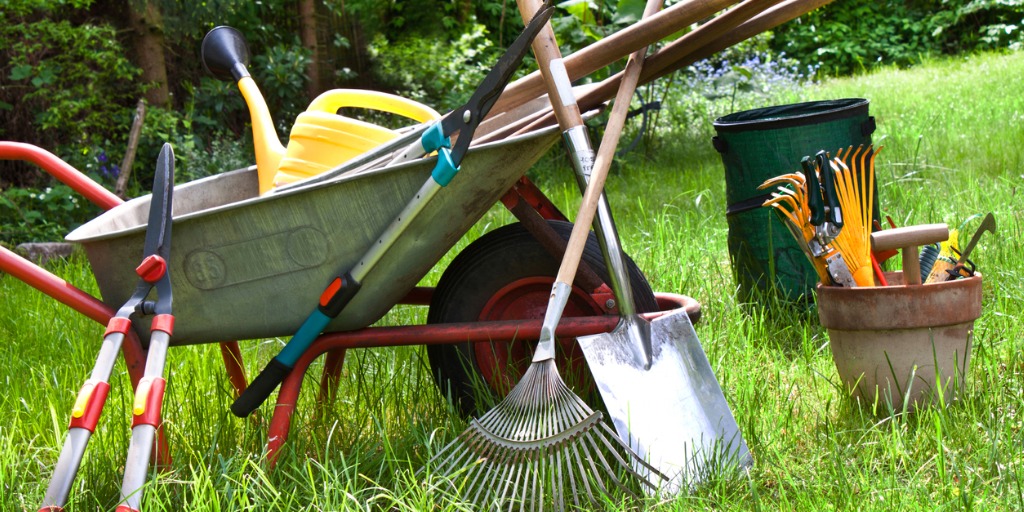
Not all landscaping tools need sophisticated, high-tech components. Many landscaping hand tools are refreshingly low-tech and simple. You’ll want a robust variety of hand-powered basic landscaping tools, including shovels, rakes, and more.
Before diving into specifics, let’s take a look at some general tips for buying hand tools:
Most hand tools have wooden handles. Wood is strong, durable, and affordable. Look for a close grain to the wood, as that denotes strength.
Avoid painted wood handles. Typically, manufacturers paint a handle when they’re trying to disguise low-quality wood.
Besides wood, you can also find tools for landscape with tubular (hollow) steel or fiberglass handles. They’re at least as strong as wood but last much longer. On the downside, they’re typically more expensive than wood.
The weight of the tool, and how that weight is distributed, impacts how the landscaping tool feels when you use it. Try before you buy whenever possible. Also, look for D-shaped handles as they provide the most comfortable grip.
Here’s a closer look at some more specific tools used in landscaping:
1. Shovel
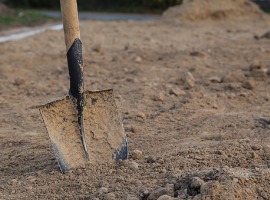
Although a shovel is a simple garden tool, you’ll likely use it all the time for digging holes, so you want to get a good one. While wood-handled shovels work fine, most professionals prefer a fiberglass or steel handle for commercial work. A shovel is usually an excellent tool to splurge a bit on for improved quality.
Choose a shovel with a head made from stainless steel. It’s lightweight, strong, and easy to clean. Also, don’t forget to sharpen your shovel a few times each year.
Average Price For Shovels: $15 – $50
2. Rakes
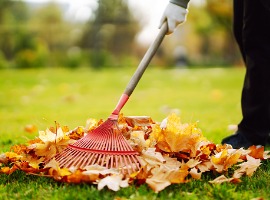
You’ll want two types of rakes:
- Steel rake
- Leaf rake
Use a level-headed steel rake for tougher jobs such as moving soil, gravel, compost, or mulch. The lighter leaf rake is used for leaves, twigs, and similar lightweight debris.
Wooden handles will typically work fine for both types of rakes. A fiberglass or steel handle usually isn’t necessary, even when raking soil or gravel.
Average Price For Rakes: $15 – $40
3. Pruning Shears
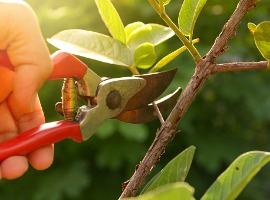
You’ll want a pair of long-handled pruning shears. They’re used to remove branches. Generally, hand-powered pruning shears can cut through branches up to one inch thick. For anything larger, you’ll want gas or electric-powered shears.
Average Price For Pruning Shears: $10 – $100
Landscaping Equipment
Powered Lawn Equipment
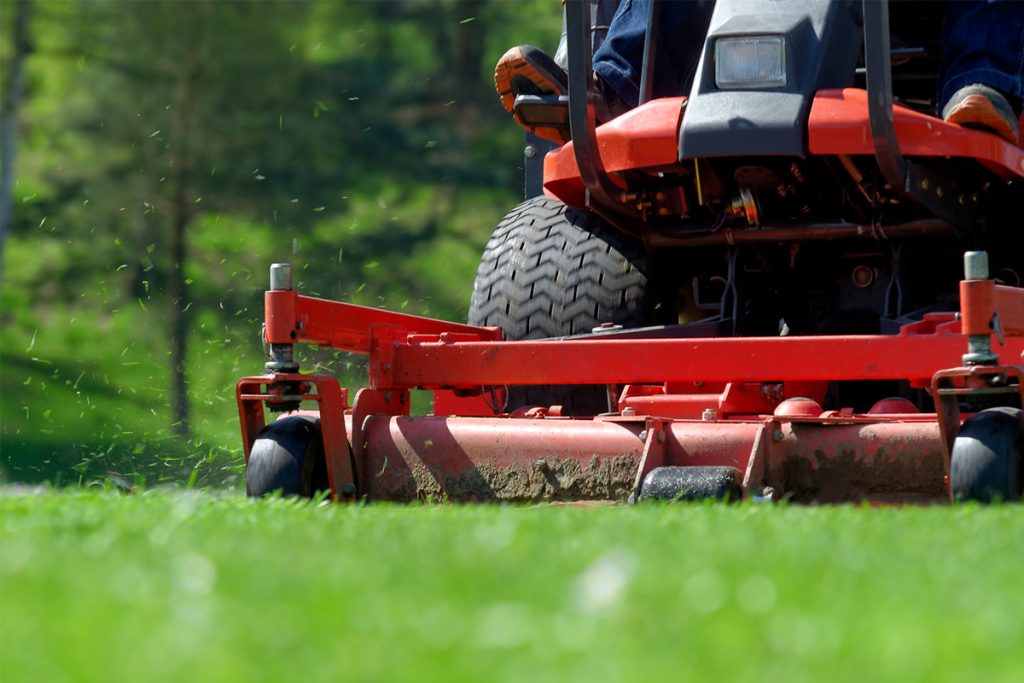
What equipment do you need to start a lawn mowing business? When it comes to lawn care & equipment, not all yard tools used in landscaping are hand tools. You’ll need some commercial landscaping equipment like power tools, too. Here are some general tips for buying power landscaping tools:
While you don’t want to bust your budget, it’s usually a good idea to buy high-quality power tools even for basic landscaping. A well-made tool works more efficiently and is less likely to break down. That said, watch out for corporation landscaping accessories you don’t need and won’t use, as they’re a needless expense.
Generally, you will want to go with the best commercial lawn care equipment from well-established brands. It’s easier to find replacement parts if needed. Power tools are either gas or battery-powered. In a head-to-head comparison from Popular Mechanics, they found:
- Electric tools are quieter
- Gas-powered tools are more powerful
Here’s an in-depth look at some basic and commercial landscaping equipment like power tools you’ll want to own:
4. Lawn Mower
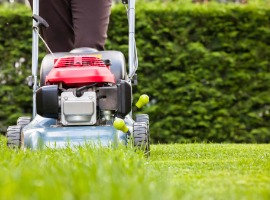
Your mower is likely the biggest and most expensive lawn care tool you’ll buy. Don’t be afraid to devote a significant piece of your budget towards a high-quality lawnmower. A powerful, well-made mower allows you to complete work quickly and accurately. Plus, it helps convey an image of professionalism.
For commercial use, you typically want a blade with a diameter of 30” or more. Anything smaller will impact your ability to mow quickly. Plus, smaller mowers usually break down more easily and generally require more maintenance.
Average Price For Lawn Mower: $100 – $1,000
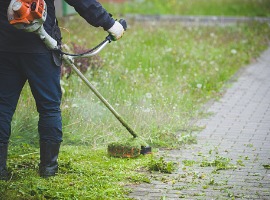
5. Grass Trimmer
Also called a weed whacker, you’ll need a trimmer to tackle weeds and grasses. It’s used to provide a finishing edge against trees, sidewalks, and other lawn features. As with lawnmowers, trimmers are either gas or electric-powered.
Average Price For Grass Trimmer: $30 – $200
Start Using Landscaping Software!
6. Leaf Blower
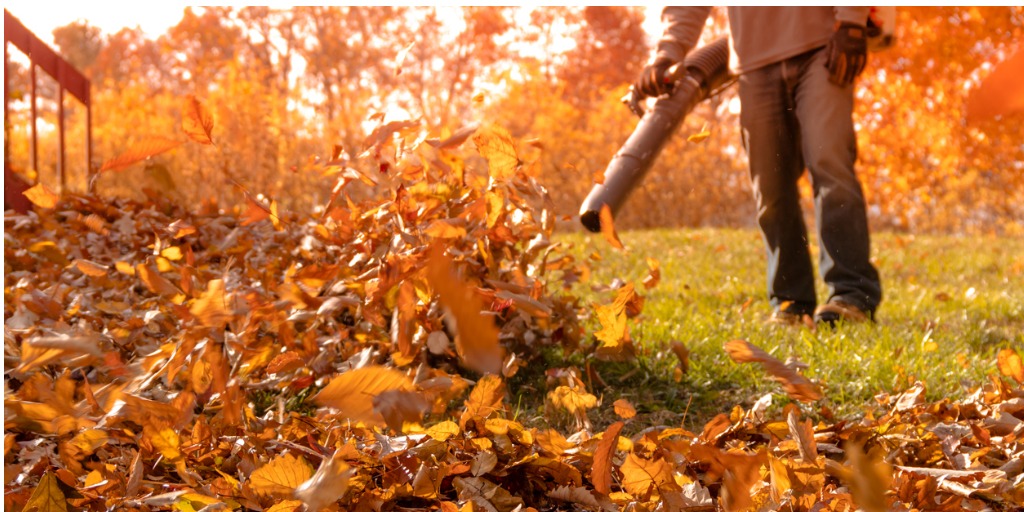
You only want a hand-powered leaf rake for small, touch-up work. Use a leaf blower for the majority of your leaf collecting. It’s the fastest, most efficient lawn care tool to wrangle up a large number of stray leaves.
Although electric models of leaf blowers are available, gas-powered ones are far more popular for commercial use. Leaf blowers require a tremendous amount of power to operate. Gas is usually easier to deal with throughout the workday.
Average Price Leaf Blower: $50 – $400
7. Hedge Trimmer
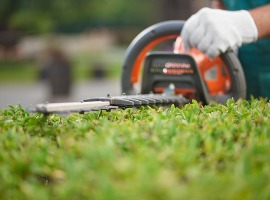
When selecting a hedge trimmer, you want to focus on comfort and portability. Unlike a mower that you push, you have to hold a hedge trimmer for long periods. It’s fatiguing even if you’re in great shape. A lightweight trimmer with padded, ergonomic handles will help keep you comfortable all day long.
Average Price For Hedge Trimmer: $30 – $300
8. Lawn Aerator
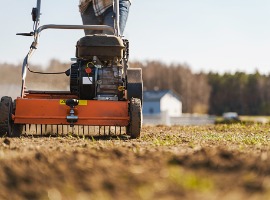
Proper aeration helps keep a lawn healthy and full. Aeration allows water, oxygen, and nutrients to flow through the soil. While hand-powered aerators do exist, you’ll want a gas or electric aerator for commercial purposes.
Average Price For Lawn Aerator: $25 – $200 (manual) / $100 – $4,000+ (machine)
Other Essential Landscaping Tools
You’ll also need a variety of other tools for lawn care that aren’t classified as either a hand or power tool. No basic and commercial landscape equipment tools list is complete without a closer look at this third category of lawn care tools and equipment:
9. Vehicles
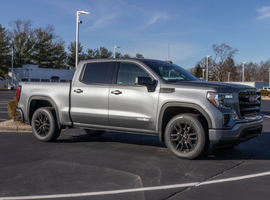
Buying vehicles gets tricky, especially if your lawn care business is in the early stages. Buying or leasing several vehicles is expensive, and might not always be possible.
It’s okay just to use one truck when you’re starting. However, keep it clean and well-maintained. Many lawn care pros ride around in beat-up, dirty pick-ups. A clean, well-maintained vehicle helps you stand out from the competition.
Also, add a company logo to your vehicle. It adds a professional look and helps increase trust. People feel reassured that the company they contracted for service is the same one showing up to the house.
Average Price: Trucks $20,000 – $60,000+ / Trailers $1,000 – $10,000+
10. Gloves
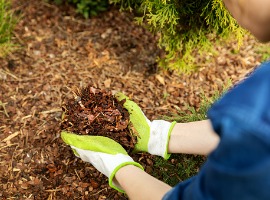
You’ll want three types of gloves:
- Washable synthetic
- Cotton gloves coated with latex
- Leather gloves
The synthetic gloves are ideal for general-purpose use with dry materials. You’ll use the latex-coated cotton gloves for dealing with wet soil. Finally, leather gloves provide the most protection. They’re the best choice for planting, digging, and major projects as well as basic landscaping.
Average Price For Gloves: $5 – $30
11. Buckets
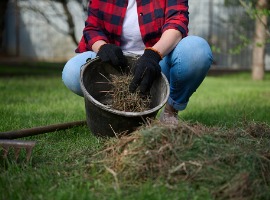
Buckets aren’t the most exciting tool, but they’re one of the most useful. You’ll want plenty of buckets on hand. They’re useful for carrying items, disposing of waste, cleaning up, and more.
Heavy-duty plastic buckets are the best option. Metal buckets can rust or corrode after consistent exposure to water, but plastic buckets stay in great shape even in wet conditions. Also, plastic buckets have slight flexibility that makes them easier to use and store.
When selecting buckets, make sure the handle is sturdy. It should have an ergonomic section to help increase comfort when held.
Also, choose a bucket with printed measurements on the inside. That allows you to easily carry specific quantities of liquid without needing a separate measuring tool.
Average Price For Buckets: $5 – $20
12. Safety Equipment
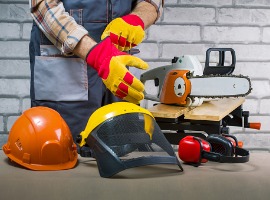
Don’t forget to keep your team safe from accidental injury. Minimum safety gear includes:
- Eye protection
- Ear protection
- Gloves
- Long-sleeved shirts
Also, you probably want steel-toed boots when working around trees, rocks, or heavy equipment.
Average Price For Safety Equipment: $10 – $50
13. Snowblower
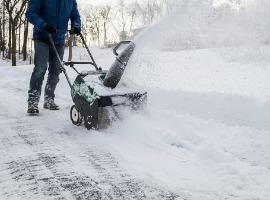
Do you work in a location that gets a lot of snow? Fortunately, you don’t have to pause your business during winter. Consider offering winter lawn care services. Many professional landscapers switch from mowing lawns to clearing snow.
Like a lawnmower, you want the most powerful snow thrower your budget allows. Fortunately, you don’t have to buy a snowblower right away. Start your business in the warmer months so you can earn profits to help you buy winter gear when needed.
Average Price For Snowblower: $100 – $2,000
14. Fertilizing Equipment
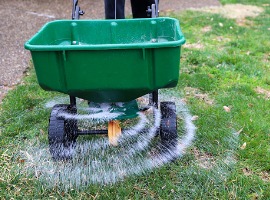
First, get a broadcast granular spreader. It disperses tiny spheres of fertilizer across large areas. You’ll mainly use fertilizer spreaders on lawns.
You’ll also want a pressurized sprayer. It’s used to dispense liquid fertilizer. You mainly spray liquid fertilizer in gardens or on plants.
Average Price: $20 – $300
15. Lawn Care Business Software

Field management software is a trusted ally for landscaping businesses. It’s a simple-to-use program that helps handle a wide variety of business needs. For example, RealGreen’s landscaping business software tracks inventory, creates invoices, manages your schedule, organizes your daily crew dispatching, and much more.
With landscaping business software, you have more time to focus on lawn care and customer service. Plus, as a business owner, you can easily stay organized.
Final Thoughts
At the end of the day, your customers will choose your business because you’re easy to work with, offer low prices, and stay committed to excellent customer service. It’s unlikely they’ll look too closely at the specific lawn-cutting tools or grass tools you use.
However, choosing high-quality lawn mowing tools and landscaping tools allows you to deliver excellent service quickly and efficiently. Aside from hand and power tools, you’ll also want powerful field management software at your disposal. If you’d like to know more about your options for landscaping business software, contact RealGreen to schedule a free demonstration today.

